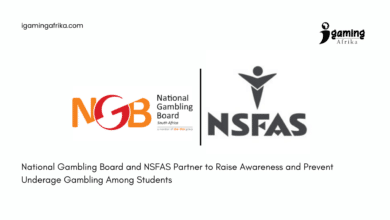Kenyan Influencers Call for Dialogue Over Betting Promotion Ban even as 48-Hour Ultimatum Expires

In a bold move to seek dialogue with the Kenyan government, a coalition of social media influencers and content creators issued a 48-hour ultimatum to the Betting Control and Licensing Board (BCLB) on Wednesday, 4th June 2025, asking the government to reconsider its recent ban on promoting betting companies on social media platforms.
The influencers hoped to engage in constructive discussions on how to regulate betting advertising responsibly rather than facing an outright prohibition.
Hansen Omido, an advocate, voiced concerns about the broad nature of the ban on behalf of the influencers. “We, the Kenyan influencer and content creator community, are indeed concerned with the recent directive from the BCLB. So the ban, that, on the influencers from participating in betting adverts, is not welcomed,” he stated. Omido emphasized that while protecting vulnerable groups like minors is essential, a blanket ban undermines the creative economy and the livelihoods of thousands of young Kenyans. “A blanket ban cannot be the solution. It is a blow to the creative economy and to the thousands of young people whose livelihoods depend on producing digital content,” he explained.
Omido further argued that the ban not only limits the creative space but also raises questions about the legitimacy of content creation as a profession. He called on authorities to “suspend the ban, sit down with us within 48 hours,” advocating for a dialogue that includes responsible advertising models and content regulation instead of outright prohibition.
Mulamwah, another prominent content creator, echoed Omido’s sentiments, emphasizing the potential for responsible engagement. “The betting comes with its own downfalls, but we can be used for the good,” he said. “We can influence people outside there, the gamers, on how to gamble responsibly. Gaming and responsible placing of bets can be promoted if given the chance.”
He also pointed out the inconsistency in regulatory approaches, noting, “When you just ban like that and leave other media to do the same, even international companies are still advertising in Kenyan markets through online platforms from Uganda, Tanzania, and elsewhere. We were making an income from that, and many people depend on us—our teams, the camera operators, editors, and location managers. Cutting that down means all those jobs are on the line.”
Austin Muigai, another influencer, called for regulation rather than termination. “They should not terminate completely; they should just regulate because this feeds a lot of people,” he asserted. “Many of us depend on this income, and a sudden ban affects not only us but entire teams behind us.” YY Comedian, meanwhile, criticized the move as hypocritical and unfair. “The directive by the BCLB is unfair because it targets influencers only, while mainstream media still promotes betting,” he pointed out. “If the goal is to regulate and help the youth, why target one segment only? This looks more like hypocrisy than regulation, and we are ready to engage in conversations about responsible oversight, but not at the expense of fairness.”
Mayoyo, another comedian, summed up the collective frustration with a simple plea: “We are really stressed. We really want the government to listen to our cry.” Erick Njiru, a sports journalist and content creator, underscored the interconnectedness of betting companies with Kenyan sports. “Four of the top teams—Gor Mahia, AFC Leopards, Police FC, and Shabana FC—are sponsored by betting firms like SportPesa, Betika, and BetPawa,” he explained. “These companies are also involved with the Kenya Football Federation and Kenya Rugby Union. The players themselves are celebrities, and their association with betting is a significant part of the sports ecosystem.” Njiru called for a responsible approach: “Let us sit down and discuss how we can regulate this industry responsibly, just like alcohol and cigarette advertising, which is done within safe hours and with proper restrictions.”
The influencers who spoke on behalf of other content creators in Kenya remain hopeful that their call for dialogue will eventually be heard, emphasizing that collaboration is essential to balancing responsible advertising with economic growth and youth protection.



















